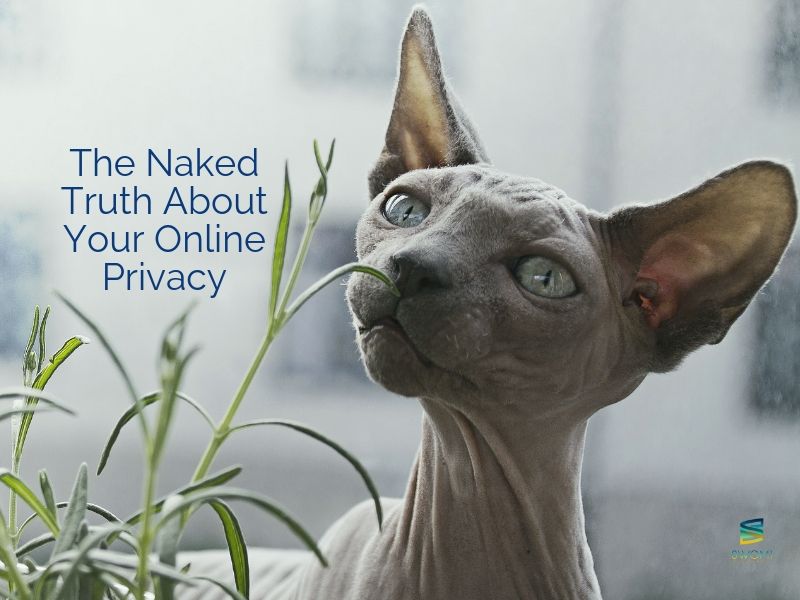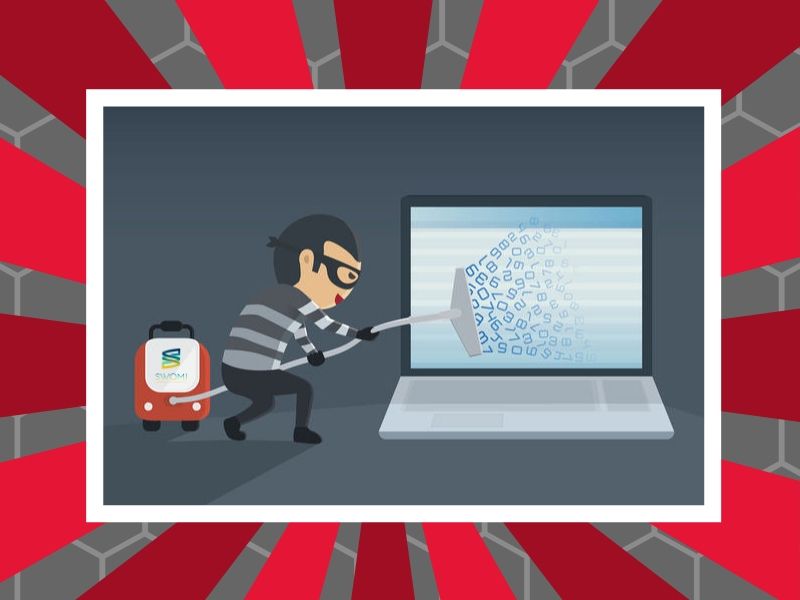The truth is staring you right in the face.
https://soundcloud.com/chekoagogo/policy-of-truth-depeche-mode
This article is letter (N) of our “Trending Topics" series where we write an article for each letter of the phrase. “Trending Topics" looks at what's the hottest, latest, and greatest for the coming new year and beyond. Find links to more articles in the series below.
We’re about to strip away the Emperor’s new clothes to give you a double serving of the naked truth about your online privacy.
Privacy is such a routine and essential part of our daily lives, we do it without second thought. You lock the door when you leave the house. Lock your car when you park it. Close the door behind you in the restroom.
If we took as many small precautions as these in our online lives, everyone would sure be a lot safer online!
Who Is Watching You?

“I love being tracked online, followed, spied on, and my information automatically gathered!” said no one ever.
This is the naked truth… you are being watched every time you go online.
By who? By online companies and amateur hackers.
Naturally, interest and attention has been growing now that there are regular news breaks about major company data security breaches, including Facebook, one of the most used social platforms in the world.
The Cambridge Analytica Facebook scandal was one of the largest security breaches of 2018 and possibly the largest the general public has ever seen. The personally identifiable information of millions of Facebook users were collected.
“What’s the big deal?” you may ask, “I like my data being tracked! It means I get personalized ads.”
To answer your question, here’s Beth Givens, director of the Privacy Rights Clearinghouse:
“How would you feel if you were in the mall and someone followed you around with a camera, noting every item you looked at,” Givens said. “I’m amazed that there’s this set of values out there in these companies that thinks it’s Okay to capture data about one’s meanderings on the Web and attempt to make money off them without consent.”
And it’s not just the big corporations either, amateur hackers regularly invade your online privacy for malicious purposes.
To just name a few, hackers can…
… download viruses onto your computer
… steal your passwords
… access your bank, credit card accounts, social security number
…. steal your identity
… hack your webcam and spy on you
Think you need to be a computer wiz to hack into other’s computers? Think again. Givens explains stealing digital information is much easier than tapping phone calls or grabbing letters from a mailbox.
Actual Laws Passed

The question is no longer if there will be privacy laws, the question is what that those laws will look like. The world saw the first major online privacy laws passed in 2018.
The European Union’s General Data Protection Regulation (GDPR) is the most well-known, popular, and ground-breaking first step towards protecting consumer’s personal data. GDPR is a data protection and privacy law on data protection and privacy for all individuals in the European Union and European Economic Area. It also takes into account exports of personal data outside the EU and EEA.
Another win for online privacy is California’s Consumer Privacy Act (CPA) passed June 2018. The bill allows California residents to know what information businesses collect from them, where that information comes from, and how it’s shared. Additionally, people have the power to ask for their data to be deleted, request their information stop being sold, and limit selling the data of those under 16 years of age.
The world’s privacy battle will intensify in 2019, especially in the EU. The regulations may differ, but the goal is the same: empower consumers with ownership over their data.
Generational Views Of Online Privacy

Before the internet, the concept of “privacy” had a simpler meaning. With the internet, a whole new dimension of privacy was formed to suite the online world. Older generations tend to view their privacy abstractly. They think of online privacy in general principles, like their relationship with the government.
Younger generations, on the other hand, have a solid, practical understanding of online privacy. Interestingly, they use their online privacy kung-fu to block certain people from seeing select pieces of content. For example, they may not want their mom to see pictures from the party they went to last week.
Younger age groups also care the most about how their information is used. And they expect to have a high level of control over their personal information.
As Heather West explains in her guest post on Wired:
"Younger users may not be able to cite specific privacy laws and standards off the top of their heads but they have a firm grasp of what they do want control over when it comes to their Internet usage and an expectation that these controls are not a privilege, but a right as digital natives."
Comfortable Lies Or The Unpleasant Truth?

It’s great to see positive change for online privacy happen on a political level. At the same time, the general public seems to hold their nothing is free online differently from their real life.
Would you say it’s pretty much common sense to not leave your house keys blatantly hanging on your mailbox? Yet so many of us do the digital equivalent of that everyday – leaving online accounts logged in when you’re not using them. Actually, forget the keys. Staying logged into your idle accounts is more like leaving your 5 privacy and security mistakes open.
When you leave your account logged in when you’re not using it, you give hackers an easy access to your social profiles, bank accounts… you name it. Even if you use one-step login, that can still put you at risk since the site is storing your password for you.
And thanks to all the recent data breaches, you know a company’s customer data can be far from invincible. We’ve already seen what those up-to-no-good hackers are capable of. There’s no reason for you to help make their job easier.
Word Up:
It’s a fact, online privacy effects the lives of everyone. Along with some personal accountability and corporate responsibility, empowering online privacy can be a reality for everyone. Here at Swomi, we believe in a future where you can benefit from the immense value of your online content.
sources: cbronline, thevpnclub, sereneadventure, nbcnews, nextgov, whatismyipaddress
This article is letter (N) of our “Trending Topics" series where we write an article for each letter of the phrase. “Trending Topics" looks at what's the hottest, latest, and greatest for the coming new year and beyond. Find links to more articles in the series below.
(T) The Major (T)rending Topics For 2019
(R) Everyone Is A Brand And Online (R)eviews Decide Your Reputation
(E) What’s Trending In (e)Content
(N) The (N)aked Truth About Your Online Privacy
(D) Surprising (D)ata Predictions For 2019
(I) Stay Ahead Of 2019 With These 11 (I)ntelligent Trends
(N)etwork Personalization And Humanization Create A Human-Centric World
(G) New Kids On The Block: (G)eneration Z And The Future Of Tech
(T)rust Makes The Online World Go ‘Round
(O) Content Marketing (O)bjectives Are The Bridge To Your Goals
(P) Online (P)rivacy Trends: Your Data Is A Big Deal
(I) 2019 – The Year Of (I)nventions, Innovations, Progress, And Ideas
(C) The In’s And Out’s Of Content (C)uration
(S) Ingredients Of Super (S)hareable Content




